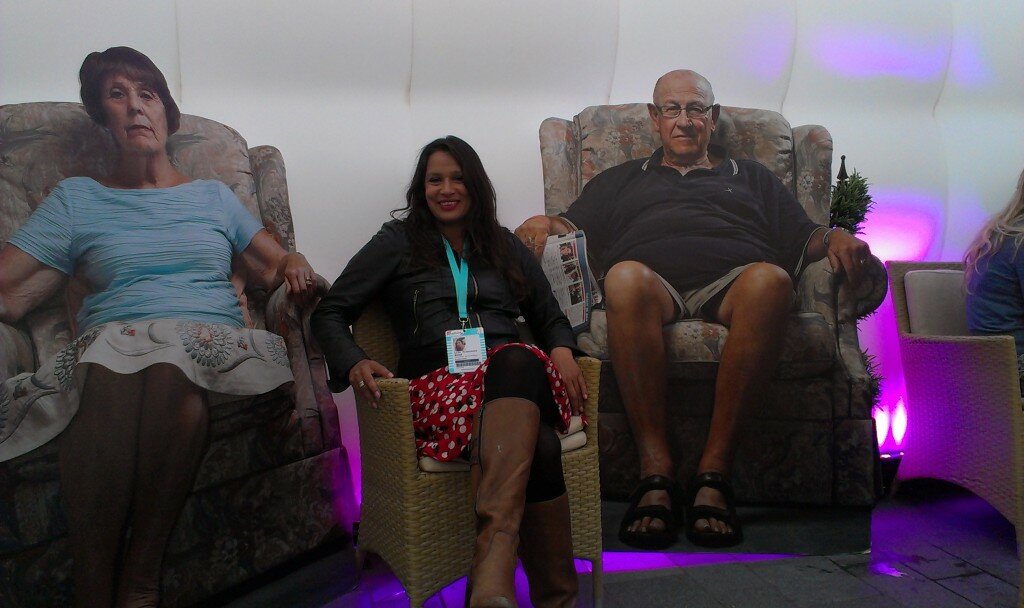Channel Information
Factual Entertainment Commissioners: Difficult to Deliver

June, Lisa Francesca Nand & Leon
Ever so often a show comes along that changes the landscape and influences everything that comes in its wake: Big Brother (contributors/contestants/celebrities confined to one location for the duration of a series), Strictly Come Dancing/Dancing With the Stars (celebrities pairing with professionals to learn a skill and compete), One Born Every Minute (fixed-rig shows). The latest show to be spreading its DNA far and wide seems to be Gogglebox. At Sheffield Doc/Fest in 2015 a panel of Factual Entertainment Commissioners discussed their current needs.
ITV
Andrew O’Connell, Commissioning Editor, Factual, kicked off by explaining ITV’s very broad remit and their shows must be funny, warm, entertaining and have an emotional heart in order to appeal to the widest audience. Inspired by Gogglebox, they are embracing ordinary people a the focus of their shows in a move away from ITV’s recent reliance on celebrity travelogues. Ordinary people open doors into telling well-trodden stories in new ways that resonate with audiences at home, especially when delving into subjects around family, relationships and work. The Trip Advisors and Big Box, Little Box are examples of this new approach.
Celebrities are not forgotten however, as the channels searches for ways of taking the best part of a format and giving it a new spin. Enter Flockstars a celebrity sheep dog trials format.
ITV are also looking to round up male-skewing factual entertainment shows that feature “a journey with an emotional heart”. Britain Sees Red: Caught on Camera, on the other hand features angry outbursts, extreme frustration….and total meltdown – all captured on camera, by the people in the middle of the mayhem. This show started out as user generated content uploaded online, which was turned into a one-off documentary and then developed into a six part series.
BBC
Alison Kirkham, Acting Controller of Factual Commissioning at the BBC said that their programmes must be interesting, informative, entertaining, emotional and engaging. They like to draw on other genres and give them a fact ent spin – current affairs, documentary, specialist factual, and cater to an audience that is equally split female/male. The Gogglebox legacy is apparent here too with “ordinary families at front and centre” of shows such as Eat Well for Less? and Britain’s Spending Habits, although both shows are actually fronted by presenters.
Subject areas need to be broad to have a life on the BBC, but the challenge is, as always, to find new approaches and tell familiar stories in new ways. Back in Time for Dinner tackled history through the prism of food, and moved the living history genre on by fast forwarding through time across the episodes. The BBC are calling this a “grown up reality” show, one which has both intellectual and emotional engagement. There was anxiety by staying with one family over six episodes (back in 1999 there was no such problem in series such as The 1900 House and all its subsequent spinoffs). A more pressing problem seems to be that having fast-forwarded through the decades in one series it’s hard to see a second series. The question they are wrestling with is: how to move it on? The onus is on innovation of the form.
Advice for producers is to pitch the more unusual or the more surprising/difficult to deliver ideas with conviction. Avoid the bland middle ground.
TLC UK
Sarah Thornton, VP, Lifestyle and Entertainment for TLC UK says she is focusing more on the factual end of the fact ent spectrum. Show on TLC must have broad appeal and be exciting; all shows have tabloid leanings, and are redemptive, warm, taboo-busting and positive in tone. Too Ugly for Love was offered as an example:
Separated at Birth, which she described as Family Reunion for the Skype generation, was inspired by a YouTube clip of two twins connecting online for the first time. The channels also experimenting with self-shot films, such as First Heartbeat, in which broadcast journalist Lisa Francesca Nand chronicles her struggles with repeated miscarriage. This taps into TLC’s mission to “put it out there” and talk about things not usually talked about. These kind of shows talk directly to their female-skewed audience but has universal touch points.
TLC UK is branding itself as the Real Life entertainment channel: truthful, authentic. If celebrities are involved in fronting a show they have to pass the filters applied to other contributors: they must be exploring a personal passion aren’t just doing something for the sake of TV.
Channel 4
Liam Humphreys, Head of Factual Entertainment Channel 4, said that the channel is all about cross-genre working at the moment in an attempt to make difficult subjects accessible and entertaining for a younger audience. He cited The Island with Bear Grylls, and Travel Man as show that currently work well for them. Celebrities out of their comfort zone is something on their wish list. The best ideas they get pitched “feel raw, new and difficult to make”.


Discussion
Comments are disallowed for this post.
Comments are closed.